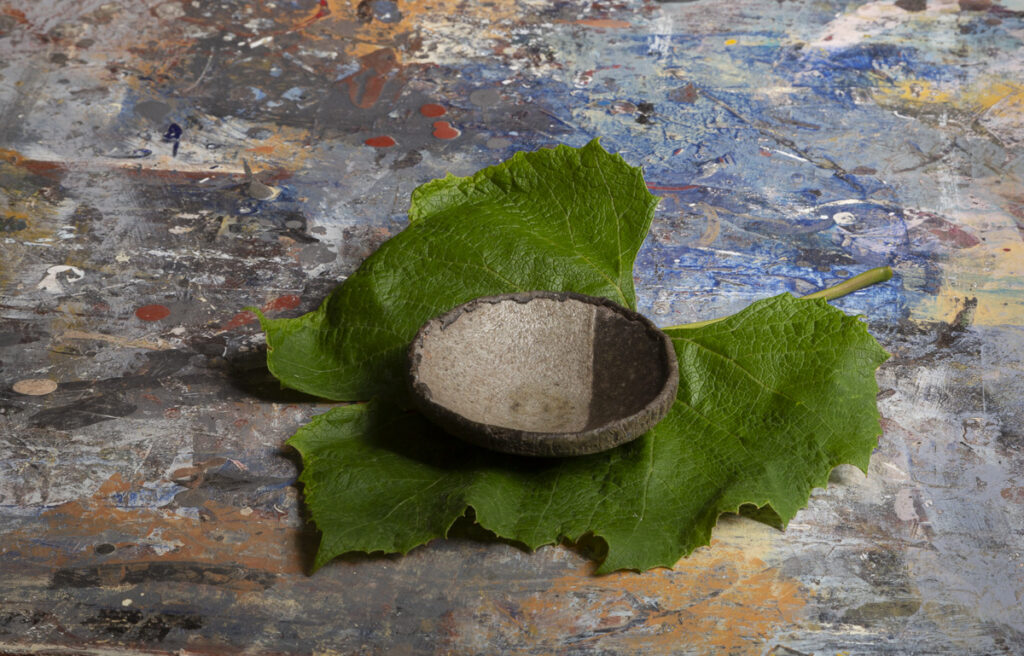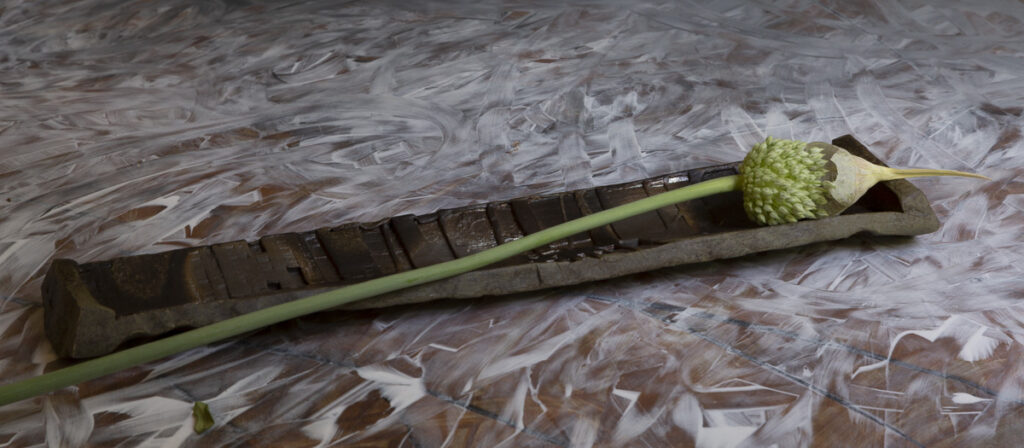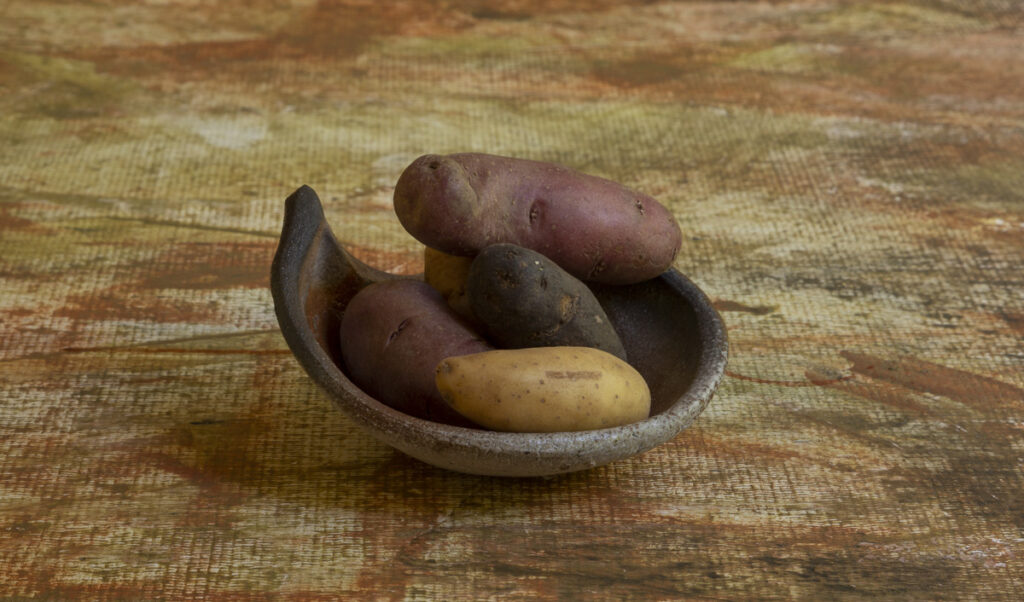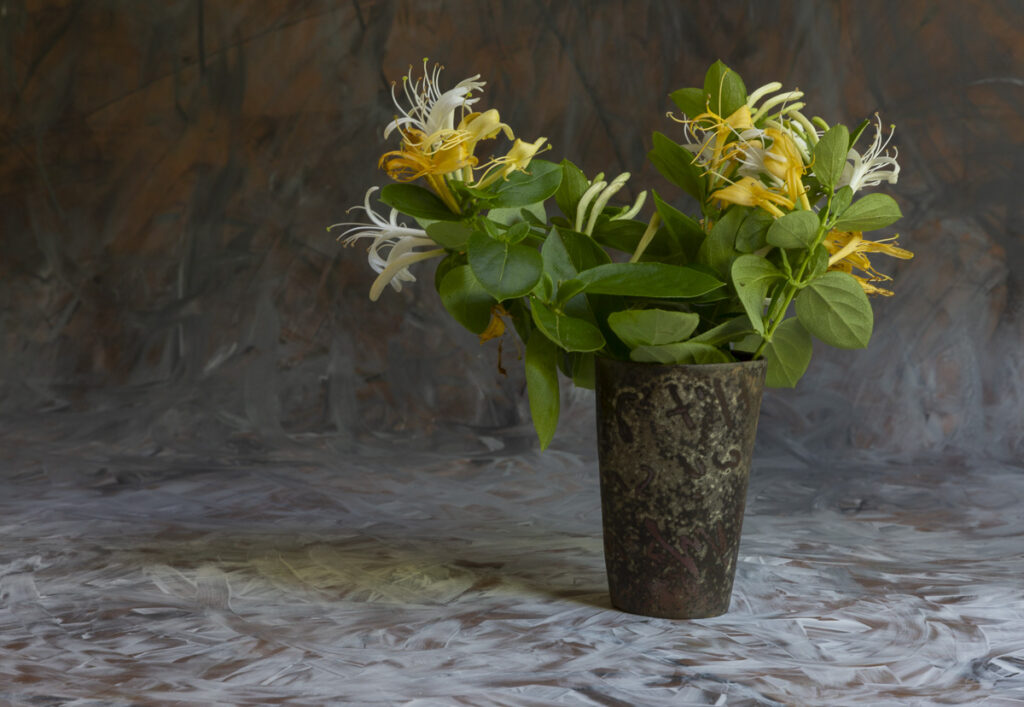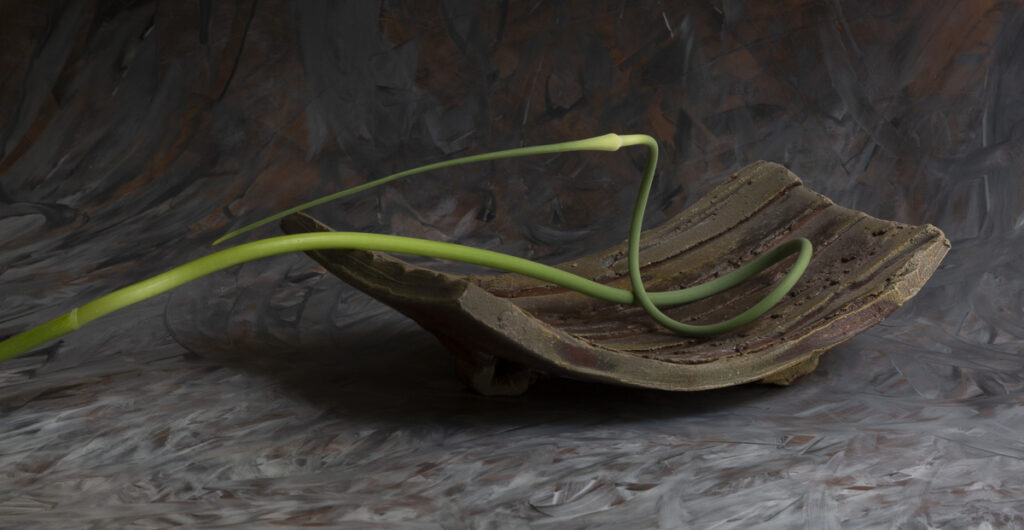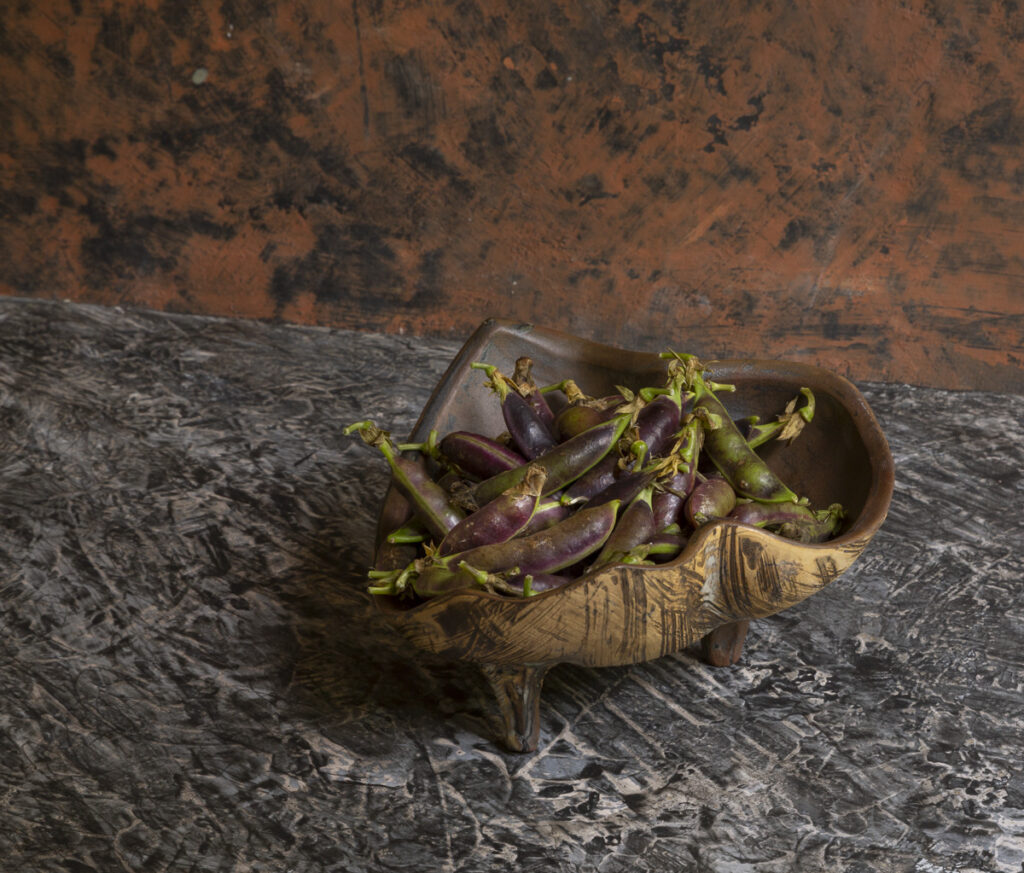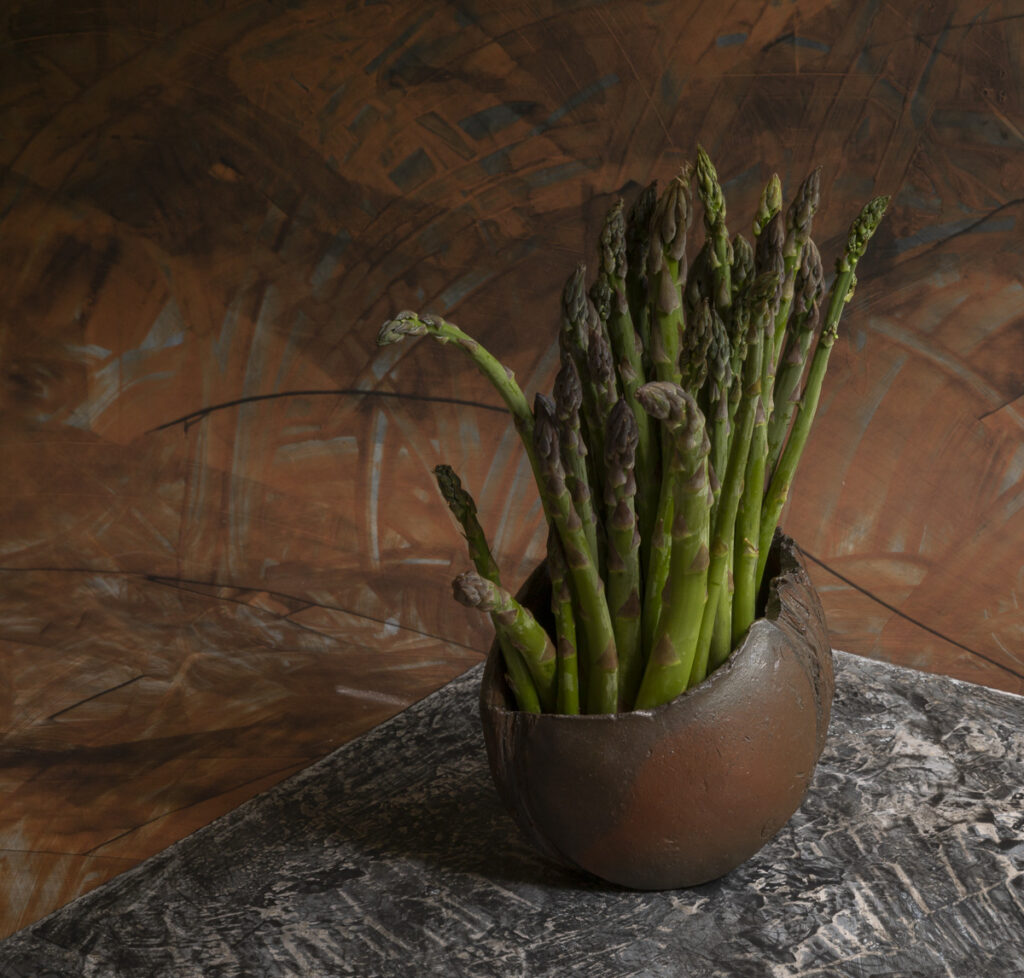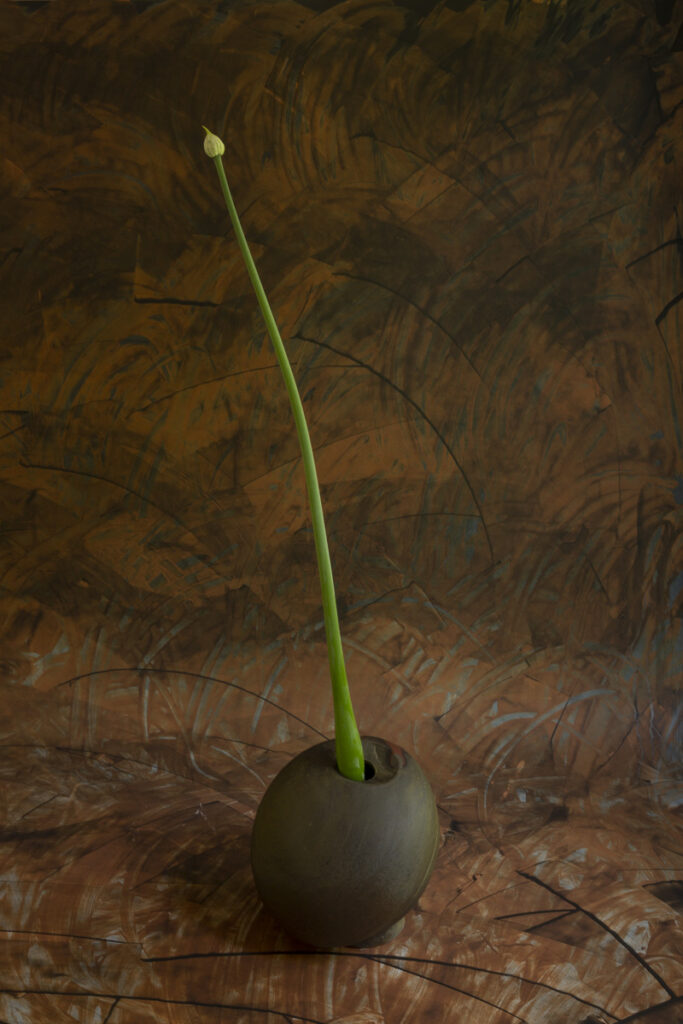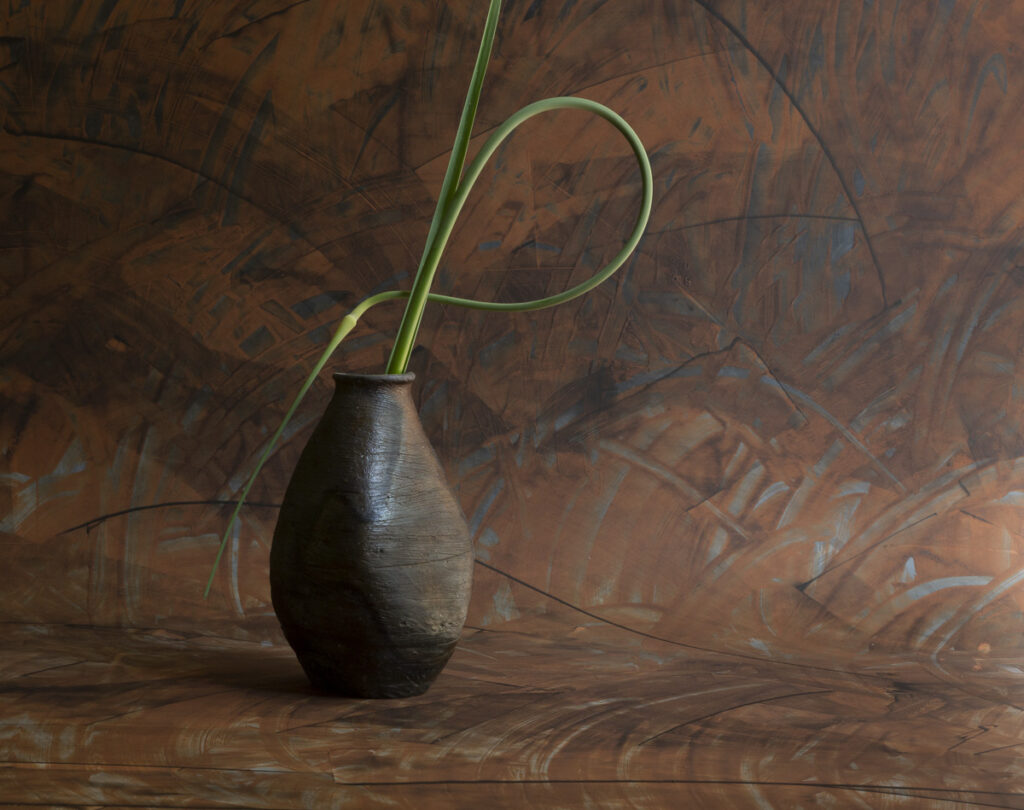A friend of mine took a photo of a bowl of clover. It was evidence of the day with her daughter who was making a meal for fairies. The image made me wistful for the days of fairies with my daughter. Days when we filled bowls with acorns, rocks, and memories. I know Covid-19 has been hard for families with children at home as well as difficult for those friends with parents in nursing homes or assisted living facilities.
I may ache to be with my daughter. I have fond memories of times in New York City, easy habits of riding the subway to Brooklyn, of drinking in the street life culture, of experiencing art in the museums, and of meals at new and old favorite restaurants. My daughter and I have tried to keep notes on the things we notice, feel, read, and cook during the pandemic. I draw the accumulations of things in bowls. One week it might be potatoes or peonies while for the next cycle it is strawberries.
Today I noticed Catalpa flowers strewn in the grass while I was out picking up sticks. I thought those would make a nice collection but they were past their prime. The pristine ones remaining were high on the trees way out of reach. I am wistful for cooking meals with friends and picking out bowls to serve from. But I also stop to ask when this is over and we look back at this time what will I be nostalgic for? The bowl of peas or the quiet dinners on the porch? Imaging things like this won’t make the loss of loved ones any easier, but it will help me fill my bowl.
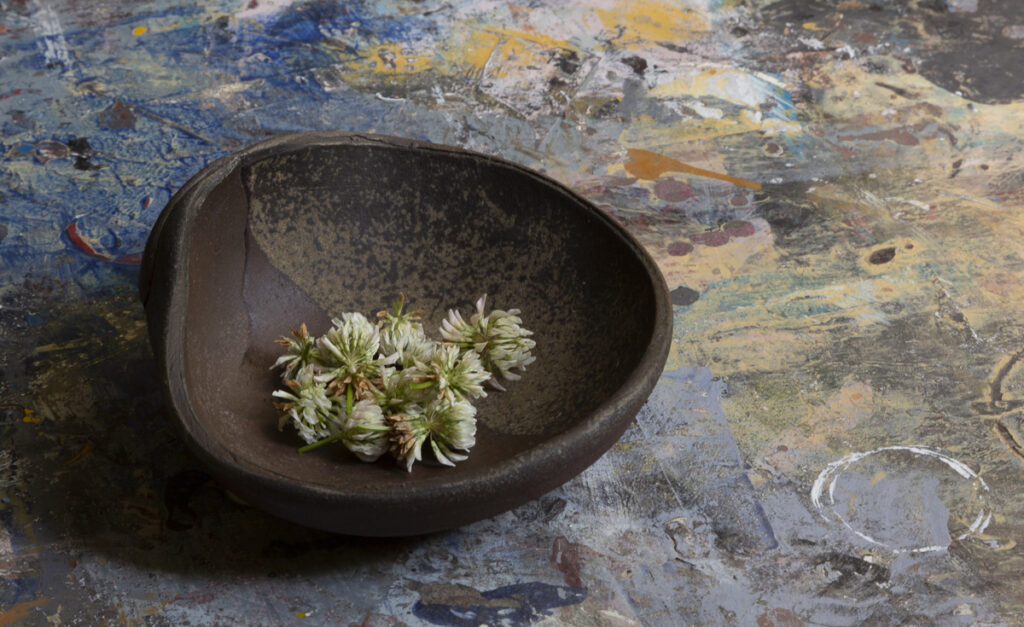
THE BOWL
If meat is put into the bowl, meat is eaten.
If rice is put into the bowl, it may be cooked.
If a shoe is put into the bowl,
the leather is chewed and chewed over,
a sentence that cannot be taken in or forgotten.
A day, if a day could feel, must feel like a bowl.
Wars, loves, trucks, betrayals, kindness,
it eats them.
Then the next day comes, spotless and hungry.
The bowl cannot be thrown away.
It cannot be broken.
It is calm, uneclipsable, rindless,
and, big though it seems, fits exactly in two human hands.
Hands with ten fingers,
fifty-four bones,
capacities strange to us almost past measure.
Scented—as the curve of the bowl is—
with cardamom, star anise, long pepper, cinnamon, hyssop.
–Jane Hirshfield, in Ledger, Alfred A. Knopf, 2020
